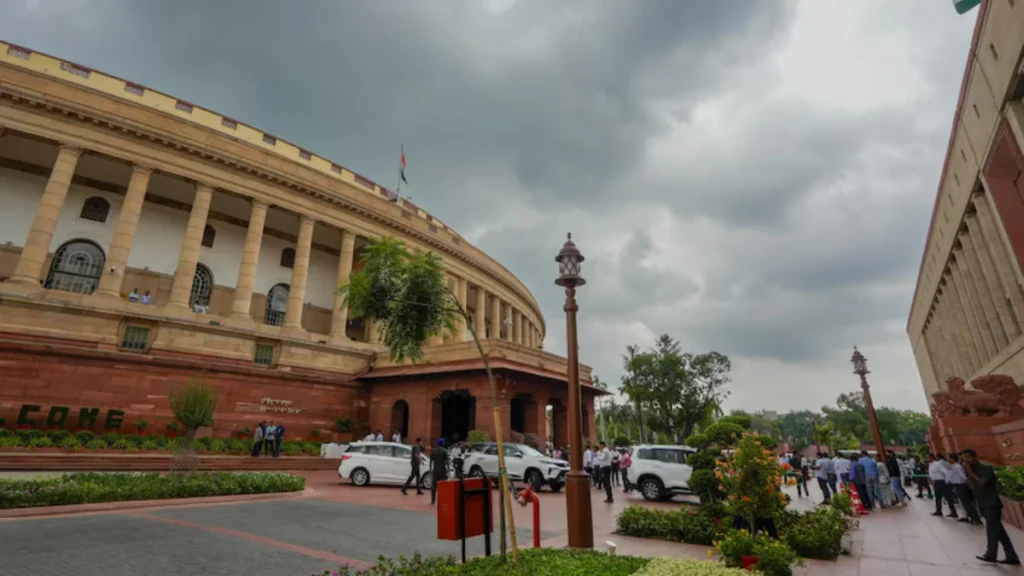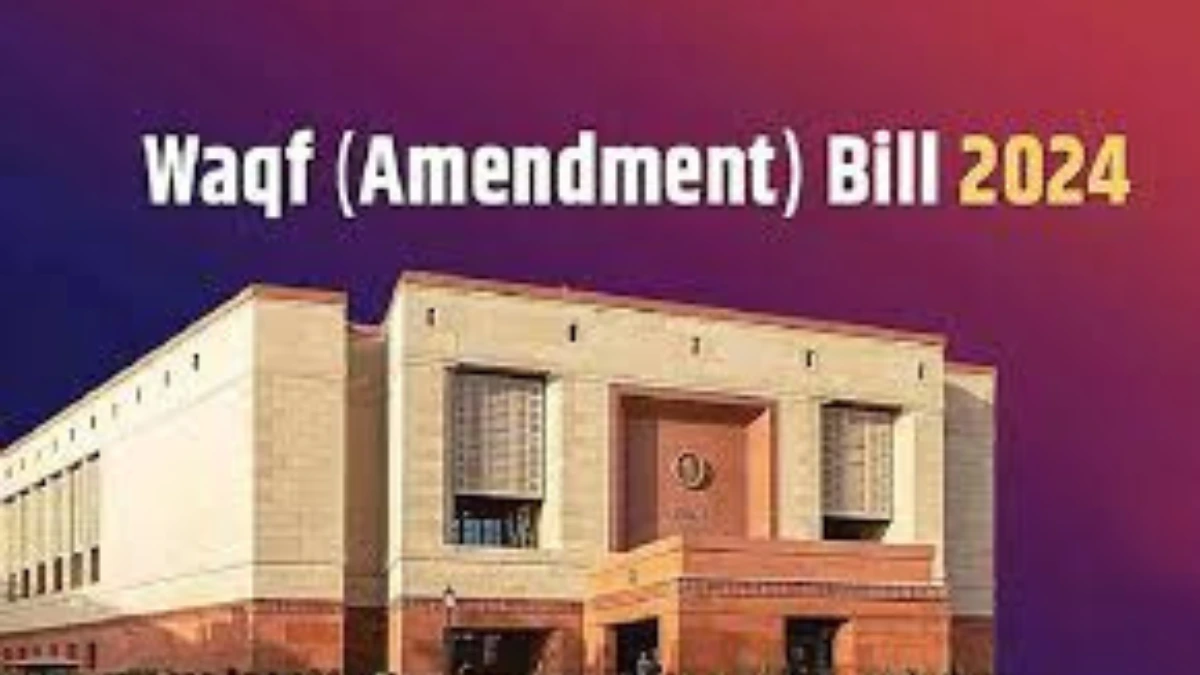The Waqf Amendment Bill 2024 is a significant piece of legislation that aims to address critical challenges in the governance of Waqf properties in India. These properties hold a pivotal role in Islamic charitable law, and their management has been a subject of intense scrutiny for decades. The introduction of this bill has stirred up political debate and legal discussions, making it crucial to understand its provisions, potential impacts, and the controversies it has ignited.
In this article, we will explore the bill’s background, its key features, and its broader implications on Indian society.
Table of Contents
What is Waqf and Why is it Important?
Definition and Historical Context
Waqf refers to an Islamic charitable endowment, typically in the form of property or land, intended for religious, educational, or charitable purposes. The income or benefits derived from Waqf are used to support these causes. Historically, Waqf has played a significant role in Muslim societies, ensuring that essential services such as mosques, schools, and hospitals are adequately funded.
In India, the management of Waqf properties dates back to the Muslim Waqf Act of 1923, which was later replaced by the Waqf Act of 1995. This law laid the foundation for Waqf governance in independent India, regulating properties across the country and establishing Waqf boards at the state and national levels.
Role of Waqf in India Today
Waqf properties are estimated to cover over 9 lakh acres of land in India, making them one of the largest sources of non-governmental landholdings. These properties are critical for the welfare of Muslim communities, as they fund essential services like education, healthcare, and religious activities. However, despite their potential, the management of Waqf properties has often been plagued by inefficiency, corruption, and legal disputes. The Waqf Amendment Bill 2024 seeks to address these challenges by introducing new provisions aimed at improving governance and transparency
You may Also Read: Godrej Projects in Noida: A Premier Investment Opportunity
You may Also Read: What is the Safest Bond to Invest In?
Key Provisions of the Waqf Amendment Bill 2024
Mandatory Registration of Waqf Properties
One of the most significant changes introduced by the Waqf Amendment Bill 2024 is the mandatory registration of all Waqf properties through a centralized portal. This registration process will be overseen by the District Collector’s Office, ensuring that all properties are accounted for and reducing the risk of disputes over land ownership. In the past, properties could be designated as Waqf without mandatory registration, leading to frequent conflicts and mismanagement.
This change is expected to enhance the transparency of Waqf property management and provide a clear record of all Waqf assets across the country.
Representation of Muslim Women in Waqf Boards
A progressive feature of the bill is the mandatory inclusion of Muslim women in both the Central Waqf Council and the State Waqf Boards. The bill mandates that at least two women be appointed to each board, ensuring greater gender inclusivity and empowering women in the governance of Waqf properties
This is a significant step forward, as the representation of women in Waqf governance has historically been minimal. By including women in decision-making roles, the government aims to bring diverse perspectives to the management of Waqf assets.
Shift in Dispute Resolution Authority
One of the more controversial aspects of the bill is the shift in dispute resolution authority from Waqf Tribunals to District Collectors. Under the Waqf Act of 1995, disputes over Waqf properties were handled by specialized Waqf tribunals. However, the new bill transfers this responsibility to district collectors, raising concerns about the centralization of power and potential political interference.
Critics argue that this change could lead to an erosion of the autonomy of Waqf boards, as district collectors may not have the same expertise in Waqf-related matters as the tribunals.
Provisions for Specific Communities
The bill also makes provisions for the creation of separate Waqf boards for specific Muslim sects, such as the Bohras, Agakhanis, and other minority groups within the Muslim community. This change acknowledges the diversity of the Muslim population in India and allows these groups to manage their own Waqf properties more effectively
You may Also Read: Top 5 Commercial Areas in Mumbai: Best Business Locations for Commercial Real Estate
You may Also Read: How Peer to Peer (P2P) Payment Systems Work: Everything You Need to Know
The Socio-Political Impact of the Waqf Amendment Bill
Controversies Surrounding the Bill
The introduction of the Waqf Amendment Bill 2024 has sparked significant opposition from various Muslim organizations and political parties. Many argue that the bill gives too much control to the government, particularly through the transfer of dispute resolution powers to district collectors. There are fears that this could lead to the alienation of Waqf properties, with the government exerting undue influence over their management, Additionally, some critics have raised concerns that the bill could lead to the privatization or commercialization of Waqf assets, undermining their original charitable purpose.
The Rationale Behind the Amendments
The government, however, defends the bill as a necessary step toward improving the transparency and efficiency of Waqf property management. By introducing mandatory registration and streamlining the dispute resolution process, the bill aims to address long-standing issues such as encroachment, illegal transfers, and corruption within Waqf governance Proponents of the bill argue that these reforms will ultimately benefit the Muslim community by ensuring that Waqf properties are used for their intended purposes and are managed in a transparent and accountable manner.

Future Implications of the Waqf Amendment Bill
Potential Positive Outcomes
If implemented effectively, the Waqf Amendment Bill 2024 could lead to significant improvements in the management of Waqf properties. The mandatory registration of assets and the inclusion of women in Waqf boards are expected to bring greater accountability and diversity to the governance of these properties, Additionally, the bill’s provisions for specific communities could help ensure that minority Muslim groups have a greater say in the management of their own Waqf properties.
Potential Negative Impacts
However, the bill also carries some risks. The transfer of dispute resolution powers to district collectors has raised concerns about the potential for political interference and the centralization of authority. Critics fear that this could lead to a loss of autonomy for Waqf boards and an erosion of the traditional role of Waqf tribunals furthermore, there are concerns that the bill could lead to the alienation or mismanagement of Waqf properties if the new governance structures are not properly implemented.
You may Also Read: Top 10 New Technology Trends in 2024: A Comprehensive Guide
You may Also Read: Top 10 Best Residential Projects on Noida Expressway
Conclusion
The Waqf Amendment Bill 2024 is a significant piece of legislation that seeks to reform the governance of Waqf properties in India. By introducing mandatory registration, ensuring the representation of women, and making provisions for specific Muslim sects, the bill aims to modernize Waqf governance and address long-standing issues of mismanagement.
However, the bill has also sparked controversy, particularly over the transfer of dispute resolution powers to district collectors and concerns about government overreach. As the bill moves forward, it will be important to ensure that its provisions are implemented in a way that respects the autonomy of Waqf boards and preserves the charitable purpose of Waqf properties.
In the end, the success of the Waqf Amendment Bill 2024 will depend on how effectively it balances the need for transparency and accountability with the need to protect the religious and charitable nature of Waqf assets.
You may Also Read: Best Cryptocurrencies to Buy Now: Top Picks for 2024
You may Also Read: Comprehensive Guide to Upcoming IPOs in September 2024: What Indian Investors Should Know
H4: FAQs Related to Waqf Amendment Bill
What is in a Waqf Amendment Bill?
A Waqf Amendment Bill is a piece of legislation designed to modify the existing laws governing Waqf properties in India. It often introduces new provisions or changes existing ones to address issues related to the management, ownership, and utilization of Waqf assets.
Is the Waqf Bill passed in 2024?
As of September 2024, the specific details of the Waqf Amendment Bill for 2024 are not publicly available. The passage of the bill would depend on the legislative process and the decisions made by the Indian Parliament.
What is the Waqf Property Act?
The Waqf Property Act is the primary legislation in India governing Waqf properties. It outlines the rules and regulations for the creation, management, and utilization of Waqf endowments.
Can a Waqf Board be removed?
Yes, a Waqf Board can be removed under certain circumstances, as specified in the Waqf Property Act. These circumstances might include mismanagement, corruption, or failure to comply with the law.
Is the Waqf Act still in effect?
Yes, the Waqf Act is still in effect. However, it is subject to amendments and modifications through Waqf Amendment Bills.
What is Waqf full form?
Waqf is an Arabic term that translates to “endowment” or “foundation.” It refers to a charitable endowment, typically in the form of property or land, dedicated to religious, educational, or charitable purposes.
Who controls Waqf board?
Waqf boards are typically controlled by the state governments in India. These boards are responsible for overseeing the management of Waqf properties within their respective jurisdictions. However, the Central Waqf Council provides overall guidance and supervision at the national level.

